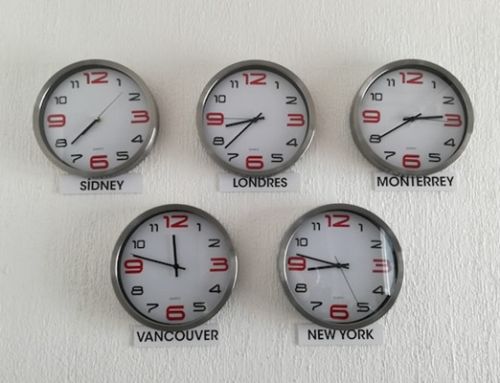With the evolution of modern business, the role of Human Resources has undergone a dazzling transformation.
Modern HR professionals are no longer mere custodians of paperwork and staff. They have become talented orchestrators, using marketing skills as their secret weapon. The fusion of marketing and HR has become a vital element in attracting top talent. However, we don’t need to feel pity for HR professionals who still lack essential marketing skills. Perhaps, they need to know the importance of learning marketing skills first.
Keeping that in mind, I will discuss why modern HR professionals need to learn marketing skills. I will also share the most crucial marketing skills that HR professionals should acquire.
So, if you are ready, then light, camera, and action…
Why Do HR Managers Need To Acquire Marketing Skills?
HR specialists now play a more varied role than just traditional personnel management. Today, they are not just recruiters and administrators; they are brand ambassadors. They need to acquire marketing skills because the business is always dynamic and ever-evolving.
Let’s take a look at the tech giants, like Google and Hubspot. Google focuses on data-driven recruitment strategies to make informed hiring decisions. Their HR team analyzes applicant data, tracks recruitment metrics, and measures the effectiveness of recruitment channels. By using data insights, Google optimizes its recruitment process.
Hubspot, on the other hand, gains good ratings and positive reviews on Glassdoor. In addition, the company’s HR team showcases strong marketing skills. This is how HubSpot became a strong employer brand that emphasizes its vibrant work culture. According to LinkedIn Global Talent Trends, effective employer branding can lead to a 50% reduction in cost per hire and a 28% increase in retention rates.
Airbnb is a global online marketplace for lodging and travel experiences. The company relies strongly on social media marketing to engage potential candidates and promote its employer brand. Their HR team shares authentic stories from employees, showcases company events, and highlights diversity and inclusion initiatives. 79% of job seekers use social media during their job search, reported by CareerArc. So, it is a powerful platform for HR professionals to connect with candidates.
Marketing skills like these allow HR managers to engage candidates throughout the recruitment process. They can tap into passive candidates and create a talent pipeline. This encourages top talent to choose their company over competitors. HR managers can make informed decisions by analyzing market trends and insights. Hence, they can develop internal marketing campaigns that promote employee advocacy.
Image by Freepik
5 Essential Marketing Skills That Modern HR Professionals Should Acquire
I guess you have understood the fascinating interplay between marketing and HR. The good thing is that HR professionals don’t need to turn themselves into full-time marketers. They just need to acquire the following marketing skills to make them extraordinary.
1. Creating and Upholding a Clear Brand Voice
72% of HR professionals believe that a strong employer brand is crucial for attracting top talent, as reported by LinkedIn’s Global Talent Trends 2021. HR professionals need to develop and maintain a clear and consistent brand voice in order to keep up with a world where employer branding and company reputation are crucial. They must promote the value, culture, and objectives of the organization to potential clients. So, throughout the recruitment process, they should craft compelling job descriptions.
A leading tech company, Tech Innovators Inc., adopted a unique and playful brand voice in their job postings They attracted a higher number of applicants as a result of this. Furthermore, it led to a 20% increase in candidate quality and a 15% reduction in employee turnover. Companies with a strong employer brand see a 43% decrease in cost per hire and a 28% reduction in employee turnover.
2. Learning The Basics Of PPC Campaigns May Add Benefits
As recruitment becomes more digitized, understanding the basics of Pay-Per-Click (PPC) campaigns becomes essential for HR professionals. They can reach a broader audience by running targeted ads on platforms like Google or social media. A study by SHRM revealed that 40% of global job seekers use online search engines when looking for job opportunities. Therefore, HR professionals should leverage PPC campaigns for talent acquisition.
Philip Pasma, an expert in digital marketing at Asterisk Marketing, commented that, “Understanding how PPC advertising works, HR professionals can create targeted and effective job ads that reach the right audience. With PPC advertising, HR professionals can target their ads to specific demographics, locations, and job titles, ensuring that their job ads are seen by the most qualified candidates. This can help HR professionals attract top talent and fill open positions more quickly and efficiently.”
3. Improving Onboarding with UX Knowledge
User experience (UX) is not limited to customer interactions; it also plays a significant role in employee onboarding. HR professionals who understand UX principles can design seamless and engaging onboarding processes. As a result, employee retention rates may rise, increasing employee satisfaction. A Glassdoor study found that companies with effective onboarding procedures increase new hire retention by 82%.
To prove this statement, let me give a real incident from Tech Solutions Co. The company revamped its onboarding process by creating an interactive online portal. It added clear instructions, virtual tours of the office, and a comprehensive knowledge base to the portal. You will be surprised to know that this approach reduced the time taken by new employees of Tech Solutions Co. to reach full productivity by 30%.
4. Making Talent Acquisition More Like Customer Acquisition
As a modern HR professional, you must recognize the similarities between talent acquisition and customer acquisition. You should be familiar with the latest marketing strategies. These can include personalized communication, nurturing a talent pipeline, building smart relationships, and so on. If you treat candidates like valued customers, this can have a positive impact on your brand as an employer.
Innovate Now Inc. has become a popular brand for talent acquisition. They do things differently by implementing a candidate relationship management (CRM) system to engage with passive candidates. They send personalized newsletters, career development resources, and invitations to company events. As a result of this strategy, the company’s talent pipeline saw a 50% increase in qualified candidates. It is as Avature puts it, Mondelez was able to cut costs by $5.7 million on recruiting in a year using a CRM.
5. Get Used To The HR Technologies
To streamline HR processes, technologies are continuously evolving. There are various HR technologies, such as applicant tracking systems, AI-powered recruitment tools, and HR analytics software. Many companies rely on AI hiring processes and machine learning-based recruitment. Recently, TIDIO ran some online surveys and polls regarding AI hiring, and the results were shocking. Here is what they have found:
Credit: TIDIO
In one of their surveys, they found that 77% of HR personnel believe real people won’t be needed for the recruitment process in the future. Global Solutions Corp. implemented an AI-driven resume screening tool that automatically shortlisted candidates based on predetermined criteria. This reduced the time spent on screening by 70%. So, if you want to keep your HR job and overcome AI, you should gain insights from HR technologies. Plus, HR tools will help you make data-driven decisions for talent management.
So, I guess you have realized that marketing skills have become a powerful tool for modern HR. This is the new way to attract top talent, shape compelling employer brands, and drive employee engagement. With the above marketing skills, HR professionals can turn their organizations into thriving, innovative, and magnetic workplaces.







Leave A Comment